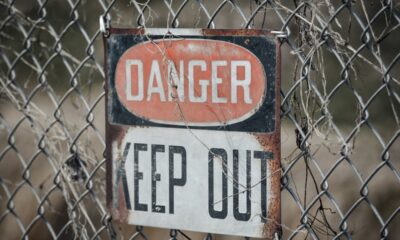Latest News
January 1, U.S. Navy Faces Rising Danger in Pacific Standoff
Wyatt’s Take
- China is building warships much faster than America.
- Our shipyards are facing big delays and shortages.
- The real battle may be fought underwater with submarines.
The USS Higgins slipped into disputed waters near Scarborough Shoal, watched closely by Chinese navy ships. China claimed it chased off the U.S. destroyer, calling the move a violation of its territory.
The U.S. responded that sailing there was legal, calling China’s complaints “false.” This standoff highlights who controls the sea in the Indo-Pacific region—and why it matters for freedom and security.
“There is no clear winning position,” said Brent Sadler, a retired Navy submariner. “The way we fight is very different—you can’t just look at the number of ships or munitions and say one side is better. That’s not how naval warfare works.”
America’s Navy still operates worldwide, with powerful carriers and more experienced sailors. China’s navy is expanding fast, showing more muscle far from home. Sadler believes China now acts more bold, feeling it could take Taiwan if needed, “whatever the cost.”
“China’s military buildup sends a signal to all that Beijing intends to use military force to alter the balance of power in the Indo-Pacific,” a senior War Department official said.
Washington says it is boosting partnerships, investing in better missiles, and strengthening factories that support the military. Still, China’s shipyards can produce about 200 times more ships than America’s, thanks to labor shortages and patchy funding here at home.
Only a handful of American yards, like Huntington Ingalls and General Dynamics, still build major warships. Back in the Cold War, there were a dozen. Now, backlogs and shifting plans slow things down even more.
China’s navy now fields over 370 ships — more by count than America’s 290. But U.S. ships are bigger and pack more punch. China’s government can flood its shipyards with funds to push out ships quickly.
“They’re probing with the bayonet to see how we respond,” Sadler said about China’s pressure on U.S. allies like the Philippines. Testing American resolve is part of their strategy.
Some in the Navy now debate whether to stick with big carriers or shift to smaller, faster subs and missile ships. “We should have been doing things ten years ago,” Sadler said, blaming past leaders for today’s mess.
“To deter war, we have to close China’s window of opportunity fast. That means more firepower on unmanned vessels we can build quickly—but also fixing our shipbuilding base if we’re going to stay in the fight.”
Underwater, the real contest is even fiercer. Submarines— stealthy and able to strike silently—are key. The U.S. has about 50 top-tier attack subs, but building new ones is slow and falling behind targets.
“I’d never say we have uncontested anything—there’s a hubris in that that can get you killed,” Sadler warned. The seas are getting more crowded and dangerous, with both sides using every trick to hunt each other’s subs.
Wyatt Matters
This is about keeping America safe and strong at home. Our workers and industries once led the world. Today, we need to invest in our own shipyards, make things here, and stay prepared to defend our freedoms for the next generation.

-

 Entertainment2 years ago
Entertainment2 years agoWhoopi Goldberg’s “Wildly Inappropriate” Commentary Forces “The View” into Unscheduled Commercial Break
-

 Entertainment2 years ago
Entertainment2 years ago‘He’s A Pr*ck And F*cking Hates Republicans’: Megyn Kelly Goes Off on Don Lemon
-

 Featured2 years ago
Featured2 years agoUS Advises Citizens to Leave This Country ASAP
-

 Featured2 years ago
Featured2 years agoBenghazi Hero: Hillary Clinton is “One of the Most Disgusting Humans on Earth”
-

 Entertainment2 years ago
Entertainment2 years agoComedy Mourns Legend Richard Lewis: A Heartfelt Farewell
-

 Featured2 years ago
Featured2 years agoFox News Calls Security on Donald Trump Jr. at GOP Debate [Video]
-

 Latest News2 years ago
Latest News2 years agoNude Woman Wields Spiked Club in Daylight Venice Beach Brawl
-

 Latest News2 years ago
Latest News2 years agoSupreme Court Gift: Trump’s Trial Delayed, Election Interference Allegations Linger
Nunya
November 7, 2025 at 5:36 pm
Where is China going to get those “funds to flood its ship yards”? They have had quite a reduction in sales of late. And it is only their fault. No one else’s fault but theirs. How about living with the rest of the world instead of having to attempt to subjugate them?
H Lee
November 7, 2025 at 9:38 pm
China would be a bunch of fools to start a war with the US. It would be disasterious for both sides.
Steve
November 8, 2025 at 4:02 pm
We can’t keep up with ship building because we get our steel from our fuckin enemy….CHINA